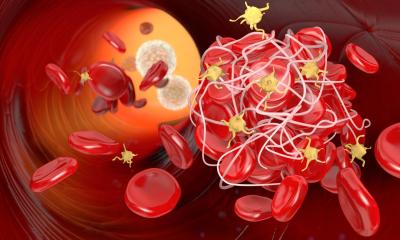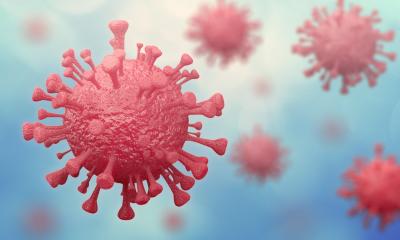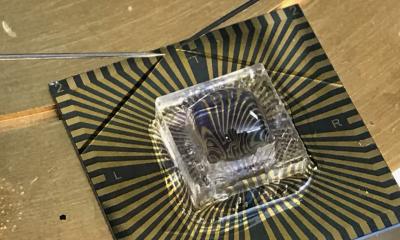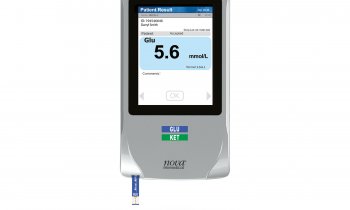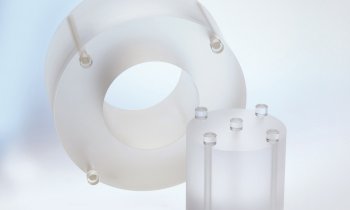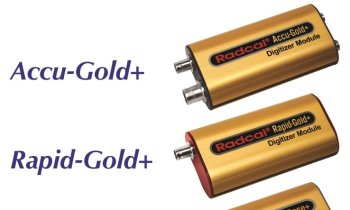Image source: Adobe Stock/peterschreiber.media
News • "COMPASS" method
Using nanoparticles for more sensitive rapid tests
A newly developed rapid test needs only a few seconds to reliably detect pathogens such as SARS-CoV-2. It is based on specially designed magnetic nanoparticles.
The current rapid tests for diagnosing infectious diseases are speedy, but not really fast. For example, antigen self-tests, PCR tests or ELISA tests for coronavirus take 15 minutes to several hours before a reliable result is available. In contrast, a new and very sensitive rapid test developed by a team from the universities of Würzburg and Erlangen in Bavaria, Germany, takes much less time. It is based on specially designed magnetic nanoparticles and a newly developed measuring method. With a mobile measuring device the size of a laptop, it takes only a few seconds to reliably detect antibodies against the SARS-CoV-2 coronavirus from a saliva sample, for example.
The team reports on this progress in the journal Nature Communications. "Our test would actually take less than a minute, including sampling and everything else. This opens up completely new areas of application, for example in controls at the entrance to stadiums," says Würzburg physicist Dr. Patrick Vogel, first author of the publication.
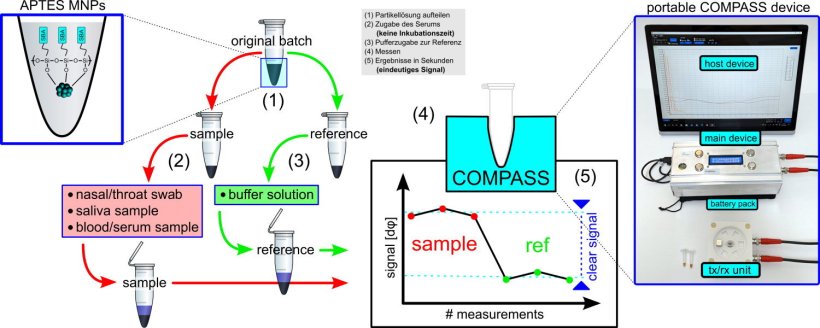
Image source: Dr. Patrick Vogel / Universität Würzburg
Magnetic nanoparticles, or MNPs for short, are used today in a wide variety of areas. They are spheres of iron oxide that are only a few hundred nanometres in size. By specifically engineering their surfaces, not only their magnetic properties can be adjusted, but also the functionality of their surface. This can be used, for example, to bind specific antibodies or antigens to the beads. If such binding occurs, the particles enlarge minimally. In order to be able to measure this change, which is only a few nanometres in size, the team led by Professor Volker Behr and Dr. Patrick Vogel from the Institute of Physics at Julius-Maximilians-Universität Würzburg (JMU) has developed a novel measuring method: Critical Offset Magnetic PArticle SpectroScopy, or COMPASS for short. The procedure requires only a small amount of metrological effort; it is fast and similarly sensitive to the complex ELISA tests.
The physicists have carried out a real application test with the working group of Professor Lars Dölken from the JMU Institute of Virology and Immunobiology. Using a portable COMPASS measuring device, they were able to show that the new rapid test detects antibodies against SARS-CoV-2 in just a few seconds with a robust result.
The new measurement method opens up many possible applications where speed and reliability are required
Volker Behr
The special surface of the particle system is decisive for this success. The working group led by Professor Christoph Alexiou from the Section for Experimental Oncology and Nanomedicine at the ENT Clinic of the University Hospital Erlangen is responsible for its design. The group is a leader in the production and functionalisation of magnetic particles. The team from Erlangen has cleverly manipulated the surface of the particles in such a way that a wide variety of binding partners can be specifically attached there. These can then in turn bind pathogen-specific antigens or antibodies. "The new measurement method opens up many possible applications where speed and reliability are required," says Professor Behr. These include, for example, the detection of novel viral diseases or the screening of livestock for notifiable diseases.
An adaptation to newly emerging pathogens can actually be implemented quite quickly, he says: "The group from Erlangen has the possibility to produce the magnetic nanoparticles on a larger scale. As far as the corresponding ligands are available, the test sera can be produced," explains Professor Behr. For a worldwide and large-scale production, however, a large industrial partner would be needed.
The team from the Würzburg physics institute is currently working on understanding the physics of the COMPASS effect on which the measurement is based even more deeply in order to be able to fully exploit its potential. In addition, the novel measurement methodology is now being tested in various applications.
Source: University of Würzburg
26.12.2022



